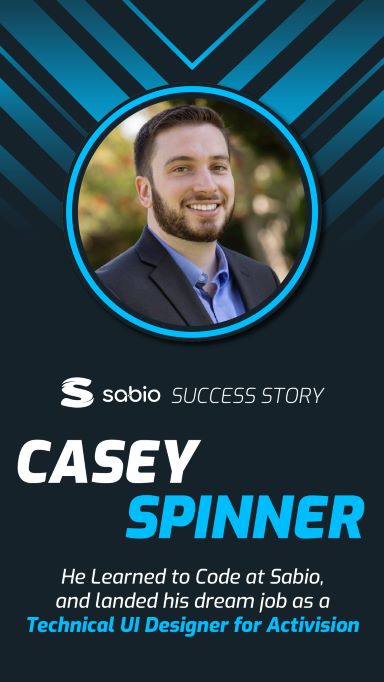Coding Bootcamp or Computer Science Degree: Which One Should You Go For?
For those wishing to get into web development, one of the most challenging decisions is whether to attend a coding bootcamp or follow the normal route of getting a computer science degree. On the one hand, web developer bootcamps have become popular skill development alternatives within the tech scene. On the other, computer science degrees have been proven and tested.
Short-term career training and skills development makes much sense in the modern context. If you are looking to change careers in tech, or if you are looking to add new skills to your portfolio, you might prefer to attend a coding bootcamp.
However, when do you make the decision to snub a traditional computer science degree? What are the key differences between the two options, and where would you even start? These are some of the main issues to ponder upon before reaching a verdict.
It is safe to say that you are not alone. Many people before you have been unable to reach a quick decision, derailing their career in the process. The following guide differentiates between a coding bootcamp and a computer science degree.
Coding Bootcamp vs. Computer Science Degree
As can be expected, you should thoroughly consider your options before deciding whether to go for one choice over the other. For example, coding bootcamps are relatively short, mostly taking between 3 and 6 months, whereas traditional college degrees take up around 4 years of your life.
Another key difference is that coding bootcamp graduates have to showcase their skills by having a portfolio, whereas software engineers graduating through college can get work by simply having a degree certificate. Other issues to consider are the costs, program practices, and salary expectations.
Therefore, you may need to sit down and perform rigorous research into the issue.

Not to fret. This guide makes it easier for you to know what to expect from each course of action. We have covered a list of matters that we feel are relevant to your current concerns.
Let's get started.
How Do You Learn?
The first consideration is the mode of learning experienced in a coding bootcamp vs. a computer science degree.
In a computer science degree, you get four years of learning on or off campus, and it depends on whether you are taking the course online or onsite.
For most people, the process is long and tedious.
In a bootcamp, you take 2-6 months to earn project-based training through intense and practical activities. Bootcamp trainers teach learners to code and utilize code in real-world workplace projects. You are likely to learn programming languages such as Python, JavaScript, and SQL. Other potential topics are modern software engineering tools, techniques, and software.
It is vital to add that coding bootcamps are not all alike. For instance, some can be online-based, while others can offer in-person training, and others have online and onsite training. It all depends on what works for you and what you are willing to sacrifice to receive the knowledge. However, most coding bootcamps offer learners the opportunity to study within highly structured learning environments.
Interactive
Coding bootcamps are highly interactive and intense. For example, full-time programs can demand upwards of 40 hours of study per week. Most of this time will be spent on lessons, coursework material, and assignments. In other part-time bootcamps, this study period can be reduced to at least 25 hours a week.
On the outside, this seems time-consuming. However, you get to cover a lot of knowledge in a short time and receive mentorship from top industry professionals.
Degree programs are quite different as the experience is quite liberal. You have time for sports, clubs, entertainment, and other co-curricular activities.
Remote
Most bootcamp coding classes are done online and, therefore, are perfect if you are looking for a remote experience.
Today, online coding bootcamps can be found everywhere. You can get knowledge from the comfort of your home city or nation through online coding bootcamps while also performing other day-to-day duties.

Classroom
The classroom experience for both options is also quite different.
You benefit from online and face-to-face classroom experiences with traditional computer science degree programs. When working online, you could be communicating with peers on discussion boards or undertaking evidence-based research. When in the classroom, you could be attending lecture sessions, socially interacting with others, and networking.
With coding bootcamps, it depends on the services being offered. Some can be remote, while others can be onsite or hybrid. The classroom almost always involves learning how to code and utilizing code in real-world workplace projects.
Cost
Pricing is a very important factor, and you need to know how much you are paying and whether you will get value for money.
Bootcamps are lower priced than computer science programs and offer several payment options. On average, you will pay $13,584 to enroll in a coding bootcamp program. Computer science degrees can be three times or four times this price.
Other considerations are living costs and accommodation.
So, with a coding bootcamp, you pay cheaper for an in-depth project-based training experience that will put you in a specific job subsector, while in a degree program, you pay more to get a vast amount of knowledge that you may or may not use in the future.
Salary
The salary aspect of any educational program lets you think about the return on investment. Return on investment (ROI) refers to the ratio between the net income you make from an investment and the actual investment you had initially made.
In this regard, coding bootcamps have a better ROI than degree programs.
For example, a bootcamp takes anywhere between 2 and 6 months and sets you up for a lifetime of career opportunities. Conversely, a degree program takes much longer to deliver the same results.
In terms of salary, most coding bootcamp graduates enjoy a starting salary of $70,698. A computer science degree will give you a mean salary of between $50k and $106K.
You can see that going for bootcamp training is a no-brainer. You earn a highly competitive salary, having studied for a very short period of time.
Potential Job Opportunities and Career Growth
Both options can be rewarding in terms of career growth and potential job opportunities in the tech industry.

Whether you complete a coding bootcamp program or a computer science degree, you are highly equipped with valuable tech skills and can kickstart your career.
Most modern bootcamps now ensure that their students are career coached and that they know how to write top resumes, face interview panels, and have project portfolios. Here, students also receive mentorship from top industry professionals.
Colleges typically offer valuable resources and opportunities to work with potential employers, industry professionals, and top researchers. However, these services are less focused than bootcamps because some courses are not specialized enough.
Curriculum and Length
With coding bootcamps, you focus on specific job sectors within the technology space. For instance, data science and full-stack development are popular go-to options for most people. While data science centers on combining domain expertise, mathematics, programming, and statistics to assimilate data into decision making, full-stack developers can develop both server and client software.
The options are not limited. You can also decide to become a cyber security expert, UX/UI developer, or software engineer.
In a degree program, the main focus is on computers and computational systems. You study programming, data structures, distinct structures, web development, databases, software engineering, computer architecture, computer networks, operating systems, and dozens of other related subjects.
In terms of length, degree programs take 4 years, while coding bootcamps can last 2 to 6 months on average.
Key Takeaways
The current guide has focused on the key differences between a coding bootcamp and a computer science degree. Several issues have been discussed.
In a computer science degree, you get four years of learning on or off campus, as it depends on whether you are taking the course online or onsite. In a bootcamp, you take 2-6 months to earn project-based training through intense and practical activities.
Another difference is that while bootcamps are interactive and intense, degree programs are quite liberal because you have time for sports, clubs, entertainment, and other co-curricular activities.
The classroom experiences and cost structures are also dissimilar. You benefit from online and face-to-face classroom experiences with traditional computer science degree programs, whereas with coding bootcamps, it depends on the services being offered.
Some bootcamps are remote, while others can be onsite or hybrid. However, the classroom almost always involves learning how to code and utilizing code in real-world workplace projects.
In terms of costs, bootcamp programs will set you back $13,584 on average. College degrees can cost up to four times more.
Finally, it has been found that salary expectations are nearly similar and that you can get job opportunities or progress in your career by doing either program.
At Sabio, we can help you develop your technical career. Click here to talk to us about how you can enroll in one of our online or onsite coding bootcamps, especially if you are looking for a coding bootcamp in Los Angeles.
Posts you might like
- Navigating the Tech Job Market: Insights from Sabio Alumni and Cybersecurity Opportunities
- Embracing the Climb: A Leader's Growth Mindset Journey
- This is the Perfect Time to Dive into Coding and Automation, This is Why!
- Troubleshoot Like a Pro: The Art of Debugging in Programming
- Beyond Bootcamp: Diverse Career Avenues in Tech
- Spotting Burnout in Tech Job Hunts: 6 Warning Signs & Ways to Overcome It
- Get Hired: Essential Knowledge for Emerging Programmers
- 7 Steps to Build a Personalized Continuous Learning Plan for Coders
- Empower Your Journey: Benefits of Remote Code Bootcamps
- Proactive Steps: Daily Rituals for the Job-Hunting Programmer
- Don't Sabotage Your Tech Job Search: Mistakes to Skip
- Unleashing Opportunities: How Bootcamp Career Services Propel Success
- From Lines to Offers: How Your Coding Experience Shapes Market Value
- Optimizing Success: Your Attitude in Coding Bootcamps
- Roadmap to Success: Tech Job Hunt with a Coding Bootcamp Mentor
- Crafting Your Tech Startup Roadmap from Bootcamp Grad
- Tips for Creating a Resume That Gets Interviews for High-Experience Jobs After Coding Bootcamp
- Accelerate Your Career: Embrace Bootcamps for Real-World Programming Skills
- The Coding Craft: Essential Skills Learned at Bootcamps
- Bootcamp Bonds: Tapping into Networks for Tech Employment
- Coding Confidence Booster: The Benefits of Coding Mock Interviews
- Programming by the Clock: The Impact of Effective Time Management
- Coding Freedom: The Value of Learning at Your Own Speed
- Calm Code Journey: Overwhelm-Free Bootcamp Success
- Polish Your Pitch: Tech Interview Communication Essentials
- Inside the Loop: Coding Bootcamps and Tech Industry Strategies
- From Zero to Hired: Decode the Experience Question in Tech Interviews
- Solving the Puzzle: Refining Your Problem-Solving as a Programmer
- The Art of Practicality: Using Coding Languages Without Overlearning
- Practice Makes Perfect: The Key to Software Engineering Brilliance



